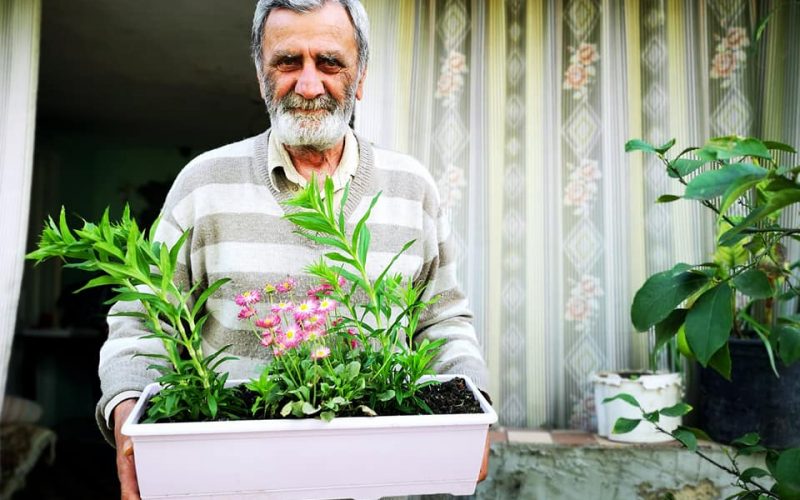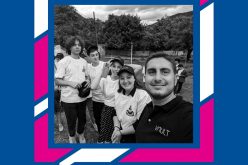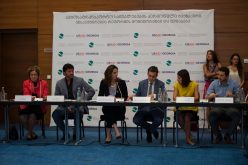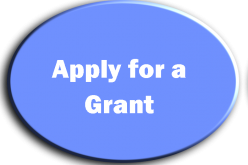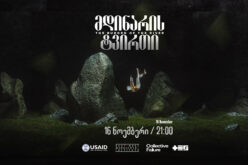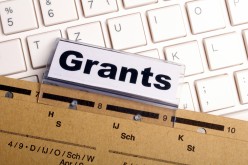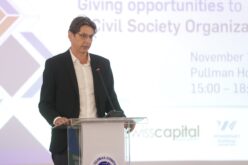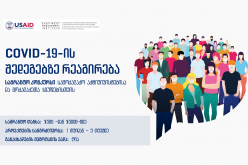From providing information to excluded groups and creating comprehensive information campaigns for everyone, to providing marginalized communities with support and establishing bridges between different sectors: EWMI ACCESS grantees show how to support those needing help most.
We all felt the same when the state of emergency was announced in Georgia due to COVID-19: a loss of control, an uncertainty of what the future may look like. It didn’t – and doesn’t – matter who you are, we’re all majorly affected by the COVID-19 pandemic. It’s been an overwhelming time, one of grieving the lives we were used to, and one where we’re trying to adapt to a new normal.
As soon as the first case of COVID-19 was detected in Georgia, ACCESS knew that what was coming would be a major challenge for anyone and that swift action was needed. What was important was that anyone would be able to cope with this crisis, despite their background. This meant encouraging and supporting a variety of civic initiatives targeting a variety of people. And soon a flexible, quick, and easy grant scheme – the Rapid Response Grant program – followed. Since then ACCESS has received and reviewed 457 applications on a rolling basis and funded 22.
 From organizing crowdfunding and volunteer initiatives helping 274 lonely elderly and over 150 socially vulnerable families; to information and awareness-raising in marginalized and ethnic minority communities in five municipalities; to providing critical information and support to 24 people with HIV and 1,237 substance-dependent individuals; to preventing and addressing disinformation and conspiracies; to developing software mitigating the negative effects of the COVID-19 outbreak; to cataloging 211 remotely available services; to building the capacity of over 250 medical personnel; to developing and distributing 35 motivational photo-diaries and -stories, and to creating more than 290 alternative learning resources for children – the people, movements and organizations who received funding from ACCESS for COVID-19 related projects vary in form, strategy and those who benefit from them – but all are there to support those for whom the pandemic is not just a stressful time.
From organizing crowdfunding and volunteer initiatives helping 274 lonely elderly and over 150 socially vulnerable families; to information and awareness-raising in marginalized and ethnic minority communities in five municipalities; to providing critical information and support to 24 people with HIV and 1,237 substance-dependent individuals; to preventing and addressing disinformation and conspiracies; to developing software mitigating the negative effects of the COVID-19 outbreak; to cataloging 211 remotely available services; to building the capacity of over 250 medical personnel; to developing and distributing 35 motivational photo-diaries and -stories, and to creating more than 290 alternative learning resources for children – the people, movements and organizations who received funding from ACCESS for COVID-19 related projects vary in form, strategy and those who benefit from them – but all are there to support those for whom the pandemic is not just a stressful time.
One of the projects supported at the moment is the project by Wolfram Syndrome Georgia, an organization advocating for the rights of people with deaf-blindness. How do you know a dangerous pandemic is spreading throughout the world when reading social media posts, watching the news, or listening to the radio isn’t something you can easily do? And how do you protect yourself from it? People with deaf-blindness globally are struggling to gain access to crucial information, and in Georgia this is no different.
More than one month into the pandemic being widely discussed on television and on social media, someone told Leila Khachapuridze from Wolfram Syndrome Georgia, that she didn’t know what the pandemic was. Leila is blind and almost deaf herself. At the onset of the pandemic, she realized her friends and colleagues didn’t have access to crucial information to keep themselves safe. She knew she had to take action. Now her organization is implementing the project that makes the COVID-19 information accessible for deaf and blind and also, helps them access essential health care and municipal services.
 In the critically struck southern regions of Georgia, the Azeri minority community – of which many do not speak Georgian – was faced with a similar information vacuum. “Many people only learned about the new restrictions once they were fined for violating them,” says a representative of the organization Salam about the lockdown, which was imposed on the region. As a result, the community started distrusting the state and law enforcement agencies. With ACCESS’ grant, Salam was able to make a change by providing accurate and immediate information in the Azerbaijani language. With ACCESS’ support, Salam feels they have become a bridge between the community and state agencies.
In the critically struck southern regions of Georgia, the Azeri minority community – of which many do not speak Georgian – was faced with a similar information vacuum. “Many people only learned about the new restrictions once they were fined for violating them,” says a representative of the organization Salam about the lockdown, which was imposed on the region. As a result, the community started distrusting the state and law enforcement agencies. With ACCESS’ grant, Salam was able to make a change by providing accurate and immediate information in the Azerbaijani language. With ACCESS’ support, Salam feels they have become a bridge between the community and state agencies.
For children, like adults, often the best manner to comprehend strange and stressful times is through a variety of angles. That’s where the popular animated character Giraffe Joze comes in, talking and singing about how to make sure you don’t get sick during the pandemic. Studio Bicycle, one of the ACCESS’ grantees and the animation studio behind the cartoon, created several posters in addition to the video to keep children informed.
Two young psychologists applied to the Rapid Response Grant program to make engaging educational videos for young children to support their uninterrupted development during the kindergarten shutdown. Although the two women weren’t a formalized organization, they had made similar educational projects previously, and ACCESS was confident in their ability to do so again. All they needed was $500 to produce several well-watched videos.
While during the pandemic for many kids online learning has been a challenge, for children with special educational needs it has been almost impossible. With all preschools and early intervention day centers closing, special needs children were left without the much-needed support to prepare for school entry. When the Innovations for Inclusive Society found out that worried parents had started calling the Ministry of Education, they started looking for solutions. Through ACCESS’ rapid grant scheme, they were able to set up a digital system to help the parents and schools prepare such children for 1st grade.
Governments may try their best at covering all aspects of the pandemic crisis, but it isn’t always possible. Cancer patients may fear they are more prone to the virus, palliative children and their families may not receive the health and counseling services they need, orphaned children living in community-based, small-group homes may experience increased levels of stress, and mis- and disinformation may lead to people believing in cures which might actually kill them instead. The Rapid Response Grant program addresses and will continue addressing these and the other urgent needs.
Slowly life seems to be going back to normal, but the crisis isn’t over yet. This also means that support for organizations, movements, and individuals who are helping us cope with the situation are still very much needed. ACCESS will continue rapidly deploying flexible resources to help people, organizations, and movements to take swift action.



